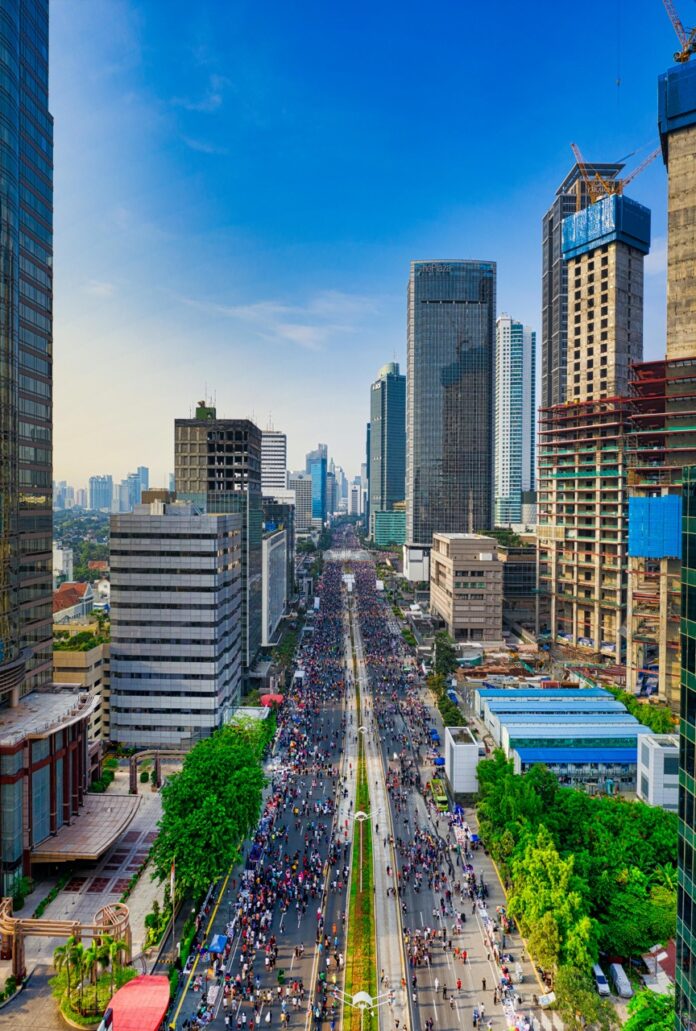The PIK 2 Land Dispute is one of the most significant legal confrontations in recent Indonesian history, reflecting the complex dynamics between individual landowners, powerful corporations, and the legal system. This dispute orbits around Charlie Chandra, a businessman entangled in a prolonged legal struggle to protect his family’s land in Tangerang, Indonesia. This case reveals the lengths corporate entities will go to secure valuable land and shows the need for comprehensive legal reforms to protect individual property rights.
The roots of the PIK 2 Land Dispute trace back to 1988 when Charlie Chandra’s father, Sumita Chandra, secured a piece of land in Tangerang, legally documented under Sertifikat Hak Milik (SHM) No. 5/Lemo. This land, which had been in the family for decades, represented more than just property; it symbolized the Chandra family’s legacy and stability. Following the death of Sumita Chandra, the responsibility for the land passed to her son, Charlie, who sought to transfer the title to ensure that the property remained within the family.
The land, however, had become a target for PT Mandiri Bangun Makmur (PT MBM), a subsidiary of the powerful conglomerate PT Agung Sedayu Group (PT PANI, Tbk). PT MBM had physically occupied the land for years, recognizing its increasing value due to the rapid development of the surrounding area. This occupation complicated Charlie’s efforts to transfer the land title, setting the stage for a legal confrontation that would test the limits of Indonesia’s legal and governmental systems.
In early 2020, Charlie initiated the transfer of the title of SHM No. 5/Lemo by consulting with a Pejabat Pembuat Akta Tanah (PPAT) in Tangerang. On February 1, the Indonesian National Land Office (BPN) confirmed that the land was still legally registered under Sumita Chandra’s name, with no blocks, seizures, or disputes recorded against it. The PPAT assured Charlie that the transfer process could proceed, and the necessary documents were submitted to BPN.
However, PT Mandiri Bangun Makmur soon lodged a formal complaint, alleging that the documents submitted for the transfer were forged. The company claimed the transfer was based on fraudulent documentation, a serious accusation under Articles 263 Jo. 55 of the Indonesian Criminal Code. This complaint was a legal challenge and a strategic move by PT MBM to disrupt the transfer process and assert control over the land.
In response to PT MBM’s allegations, BPN Head Rudi Rubijaya made the controversial decision on March 3 to cancel the transfer record of SHM No. 5/Lemo from the first owner (The Pit Nio), to the second owner (Chairul Wijaya) and to the third owner (Sumita Chandra), reverting ownership back to a previous titleholder, The Pit Nio. This decision, made under significant pressure from PT MBM, effectively nullified Charlie’s efforts to secure his family’s land, forcing him into a prolonged legal battle to reclaim ownership.
The cancellation of the land transfer marked the beginning of a fierce legal struggle. Determined to defend his family’s property, Charlie filed a lawsuit against PT Mandiri Bangun Makmur and PT Agung Sedayu, accusing them of illegally occupying the land since 2015. Charlie’s case was supported by two critical court rulings, No. 726/Pdt/1998/PT.Bdg and No. 250 PK/Pdt/2004. These rulings confirmed that Sumita Chandra was the rightful owner of the land. These rulings provided Charlie with a strong legal foundation but were not enough to deter the powerful corporate interests at play.
As the legal battle intensified, Charlie was summoned as a suspect in the alleged document forgery case on November 21. He did not attend the second summons on December 4, citing the lack of a formal letter of determination as a suspect, as required by the Indonesian Criminal Procedure Code. This procedural misstep raised serious questions about the legitimacy of the legal actions taken against him.
Seeking a fair review of the case, Charlie requested a Special Case Review at the Police’s Criminal Investigation Bureau (Wassidik Bareskrim Polri) on December 6. Despite this, Yudhis Wibisana, the Director of Criminal Investigation of the Banten Police, issued an arrest warrant for Charlie. The warrant was issued without formal notification to Charlie or his family, further complicating the legal landscape and highlighting the influence that powerful corporations could wield over law enforcement and legal proceedings.
Advocate Alvin Lim, known for his expertise in handling complex legal disputes, took on Charlie’s case as the legal pressures mounted. Lim recognized that the ongoing litigation was emotionally and financially draining for Charlie and unlikely to yield a swift resolution. Instead, Lim sought to mediate the dispute, using his experience to broker an agreement between Charlie and the opposing parties.
Through Lim’s efforts, an amicable resolution was eventually reached. On May 31, the Banten Regional Police issued an SP3 (Order to Stop Investigation), effectively halting the investigation into Charlie due to the principles of restorative justice. This decision marked a significant victory for Charlie, leading to his release from detention and ending a legal battle that had spanned several months.
The resolution of the PIK 2 Land Dispute has had far-reaching implications for land ownership and legal processes in Indonesia. The case has exposed the vulnerabilities of individual landowners when faced with powerful corporate entities that can manipulate legal mechanisms to their advantage. It has also underscored the need for greater transparency and fairness in land ownership disputes and the importance of ensuring that legal procedures are followed correctly.
The PIK 2 Land Dispute and the cases surrounding it are emblematic of the broader struggles faced by Indonesians regarding land ownership and legal rights. The intersection of powerful corporate interests, legal maneuvering, and the vulnerability of ordinary citizens has painted a stark picture of the challenges that must be addressed.
For individuals like Charlie Chandra, the fight to protect family land has transcended personal stakes, highlighting systemic issues that plague the Indonesian legal system. The involvement of prominent figures like Muhammad Said Didu, who has voiced strong opposition to the misuse of the PSN status, underscores the need for reform at the highest levels. Said Didu’s advocacy serves as a reminder that the law must serve the people and not become a tool for the powerful to suppress the weak.
The cases of Ahmad Ghozali and Tonny Permana further illustrate the prolonged and often convoluted nature of legal battles in Indonesia, particularly when faced with formidable corporate opponents. Meanwhile, the plight of local communities like those in Lemo Village, where residents have seen their livelihoods eroded by large-scale developments, highlights the real-world consequences of these legal and corporate machinations.
The sentencing of Om Polos Banget, a TikToker who dared to critique a powerful developer, has sent a chilling message about the limits of free speech in Indonesia. His case demonstrates how corporate influence can extend into public discourse, stifling criticism and curbing the freedoms of individuals.
As these cases unfold, they collectively call for a reexamination of the legal frameworks that govern land ownership and corporate responsibility in Indonesia. The PIK 2 Land Dispute and its related incidents are not merely isolated events but part of a larger narrative that demands justice and reform. For Indonesia to move forward, its legal system must evolve to protect the rights of all citizens, ensuring that power and influence do not overshadow the principles of fairness and equity.
The journey towards justice is ongoing, and as the PIK 2 case has shown, it requires the collective effort of individuals, legal advocates, and policymakers to create a system that truly serves the people. The time for reform is now, and the lessons learned from these disputes must guide the path forward.







